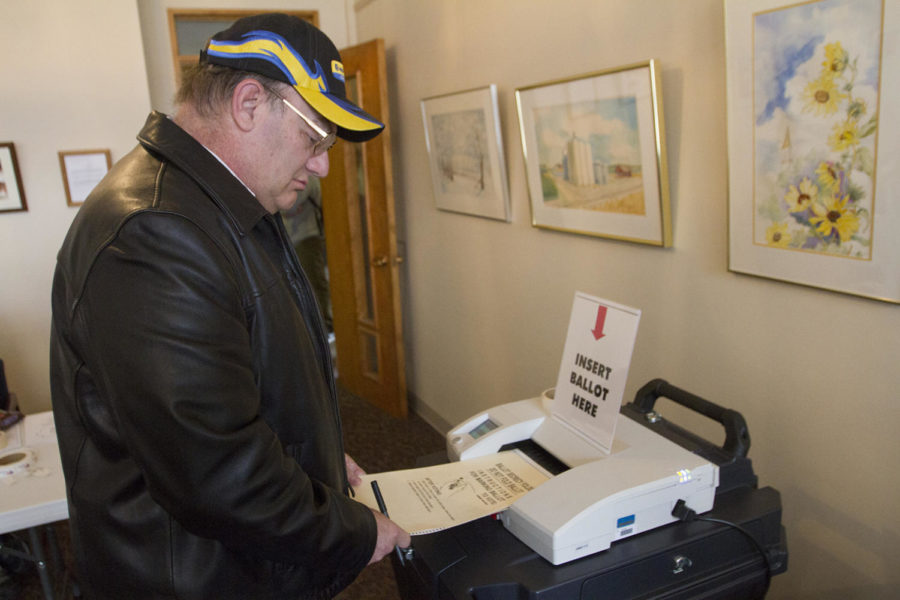New bills in House of Representatives could affect elections
Photo: Yanhua Huang/ Iowa State Daily
Mark Adkins inserts his ballot into the scan machine Tuesday, Nov. 6, at the Collegiate Presbyterian Church on Sheldon Avenue.
February 8, 2013
Two Republican-sponsored bills have recently appeared in the Iowa House of Representatives.
One would require voters to show a photo ID when voting. The second would eliminate the straight-party voting option from the ballot.
Neither bill has made it to the Senate floor yet.
“It’s something that may or may not get on the Senate floor in the first place,” said Mack Shelley, professor of political science, about the voter ID bill.
The bill would require a state-issued or student ID to vote. This makes it less restrictive than other states’ voter ID laws as student IDs are usually not accepted.
“It’s one of those things that tend to divide the parties. When we’re thinking about access to the ballots and ease of voting, there’s a trade-off between seeking out fraud and making sure all of the eligible voters can vote and on the other side, making sure all eligible voters who want to vote can vote,” said David Peterson, professor of political science.
Peterson added that the Republicans emphasize breaking up fraud, and the Democrats emphasize access to a ballot.
“It’s definitely not helpful in terms of political participation, like voting, to establish extra hurdles that you don’t have to jump over now,” Shelley said. “As it is now, you can pretty much show up on election day, and if you can legitimately claim Iowa residence, that’s all it takes.”
The second bill calls for the elimination of the option to vote all Democrat or Republican on a ballot.
“It becomes a handy, shortcut device that a lot of people use to get the voting process over fairly quickly and also sort of ensuring that people that are compatible with your political philosophy or partisanship are going to be elected without having to cherry-pick them from the ballot,” Shelley said.
While this might be seen as an annoyance to some, Shelley predicts other, more significant effects.
“A couple of different things can happen,” Shelley said. “One is just lower turnout in general. The Democrats are worried that the lower turnout would be disproportionately among their potential voters. In addition to that, there is a more serious problem that without being able to just darken in one oval that says vote for Democrats or Republicans, you get more people voting only for the top offices, like president, U.S. Senate or House of Representatives members, maybe governor, and beyond that, just giving up and not vote at all.”
If these bills were to be voted into law, they would come into effect by the next election.

















